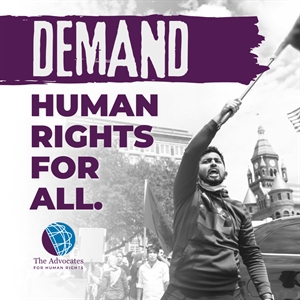Urgent Action: Protect Our Communities From Federal Overreach

URGENT ACTION: PROTECT OUR COMMUNITIES FROM FEDERAL OVERREACH
Tell Congress we want our communities to reflect our values—not be forced to prioritize federal immigration enforcement.
The US House of Representatives will be considering a bill, HR 32—the “No Bailout for Sanctuary Cities” Act—in the coming weeks. The Advocates oppose this bill and urge you to contact your member of Congress to share your concerns. Individuals should share their examples and beliefs on why they feel policies that keep state and federal authorities separate are important and benefit us all. Every vote counts in this tight Congress, so a call today will make a difference!
If passed, the bill would:
- Destroy years of work Minnesota and our local offices have invested in building community trust to ensure all people, regardless of immigration status, feel comfortable reporting crimes and assisting the police. By punishing state and local governments who wish to continue protective policies, HR 32 would destroy trust-building efforts and undermine public safety.
- Waste local law enforcement resources by demanding state and local agencies use their limited budgets for immigration actions that are squarely the responsibility of the US government.
- Dismantle the supportive communities we have built by expanding federal immigration agency presence, including in sensitive locations such as schools, hospitals, courthouses, and more.
- Punish victims and communities by withholding federal funds for lifesaving and protective services—even if unrelated to immigration matters—unless communities use their resources to support federal immigration enforcement.
Federal funds at risk include funding that covers treatment for an emergency medical condition, emergency disaster relief, public health assistance for immunizations and communicable diseases, school lunch, support for victims of domestic violence, sexual assault, dating violence, and stalking, and programs such as soup kitchens, crisis counseling, and short-term shelter.



